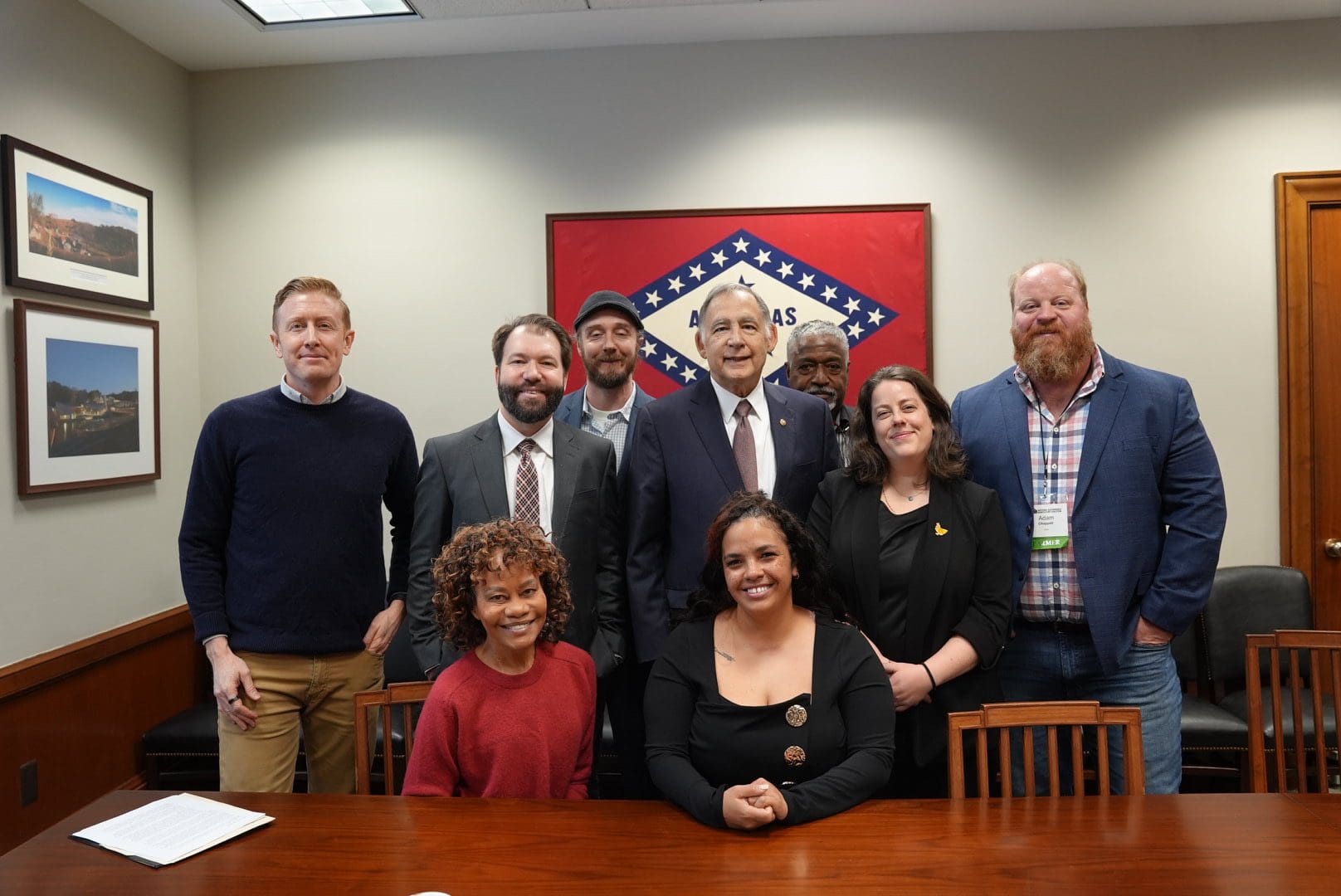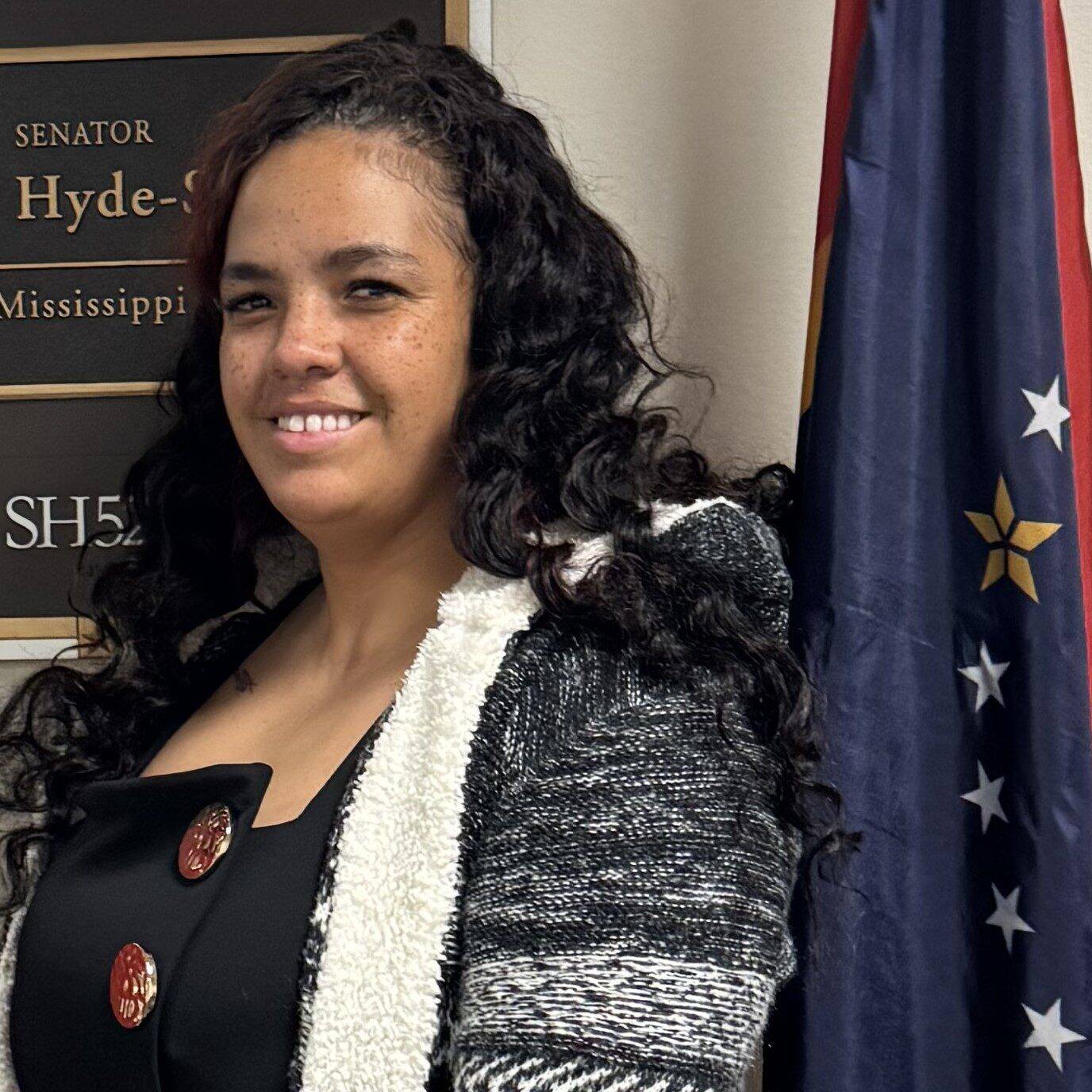Arkansas has the highest prevalence of food insecurity in the nation, with nearly 19% of its population affected, according to a U.S. Department of Agriculture (USDA) report released in September 2024. The Arkansas Foodbank, based in Little Rock, serves 33 counties and distributes millions of pounds of food each year. This makes disruptions to programs like the Local Food Purchase Assistance (LFPA) program especially harmful. In 2024, LFPA allocated $1.13 billion in federal funds to support local and regional food systems, helping small farmers stay in business. Without these programs, many farms struggle to survive.
WSBZ (Wellness, Sustainable, Bountiful, Zone) Farms, located 10 miles south of Little Rock, understands this challenge firsthand. Spanning 70 acres and four generations, the farm is led by owner Elizabeth Bell-Simpson and her daughter, Josefina “JoJo” Thomas, who serves as its Executive Director.

JoJo’s return to the family farm was fueled by a mission to sustain and expand its impact. After leaving Arkansas at a young age to serve in the U.S. Army as an Air Traffic Controller, she returned with expertise in irrigation, germination, and beekeeping, blending innovation with tradition to strengthen the farm’s operations.
In 2022, the Healthy Foods Team at Communities Unlimited (CU) partnered with Cargill’s Black Farmers Initiative to provide equipment, including trailers, to small-scale farmers across three states. WSBZ Farms was one of the recipients, and that trailer became more than just a tool — it became a catalyst for expansion, community support, and economic growth.
With the addition of the trailer, WSBZ Farms more than doubled the amount of produce it could take to market. In the past year alone, the farm delivered an impressive 182,223 pounds of produce to the Arkansas Foodbank through the LFPA program. The farm also extended its impact beyond its own operations, helping transport produce for other small farmers who lacked the means to get their goods to market, strengthening the local food system as a whole.
“We rely on grants to help expand our programs."

— Josefina “JoJo” Thomas, Executive Director WSZB Farms
“We also sell our produce through different channels,” JoJo said. “On a large scale, our main buyer is the Arkansas Foodbank. On a smaller scale, we operate a farm stand on our property, selling directly to our community.”
Despite its success, WSBZ now faces an uncertain future. On Feb. 1, 2025, a nationwide funding freeze halted USDA programs, including LFPA. As a result, the Arkansas Foodbank, WSBZ’s largest buyer, paused all purchases — leaving the farm with 5,000 pounds of sweet potatoes and no immediate buyer.
The freeze is part of the Trump administration’s push to cut federal spending, led by Elon Musk’s Department of Government Efficiency (DOGE). With the USDA under scrutiny, programs supporting small farms and food security face potential cuts.

“This is causing widespread fear among farmers, from row croppers to specialty growers and ranchers,” JoJo said. “Right now is the time when we should be preparing for the next season, but funding holds on programs like EQIP (Environmental Quality Incentives Program) and NRCS (Natural Resources Conservation Service) practices make that difficult. Farming isn’t a get-rich-quick industry — it’s about passion and heritage, and without these funds, many farmers are unsure how to move forward.”
To adapt, WSBZ Farms is focusing on local sales through their farm stand and working to attract more customers. However, the reality remains that many of their largest buyers depend on federal funding as well — when those funds aren’t available, it directly impacts the farm’s ability to operate and pay workers.
Fortunately, WSBZ Farms has leveraged past programs to build resilience, including the installation of wells and high tunnels for year-round growing. While they continue prioritizing and adjusting their plans for the year, uncertainty looms over what resources will be available moving forward.
“Most farmers, big and small, rely on federal funding just to break even."
“Whether it’s for seeds, conservation practices, or water conservation efforts, these programs help offset farming costs, and without them, survival becomes much harder,” JoJo said.
Amidst these challenges, WSBZ Farms remains dedicated to its mission. They’ve launched a community pumpkin patch, opened a community kitchen, and continued their outreach efforts, including education on USDA programs for small farmers, ranchers, and veterans.
Brenda Williams, Healthy Foods Coordinator at CU, has been a key supporter throughout the small farmer journey.
“Liz and JoJo have done some amazing work, especially in their roles as aggregators,” Brenda said. “They have created a consumer marketing strategy to help local farms maximize their farm capacity. This strategy has helped increase sales and income for small-scale farms along with increasing consumption of fresh produce in Arkansas through the LFPA program.”
Despite the challenges, JoJo remains hopeful. She continues to advocate for sustainable solutions, ensuring that WSBZ Farms can serve as a model for other small-scale farmers.

“Everybody has to eat,” JoJo said. “My mom always says that life, death, food, and water are the only certainties in life. Providing healthy food options to our community has been a blessing, and we also educate people about the importance of knowing where their food comes from.”
As WSBZ Farms navigates this period of uncertainty, one thing remains clear: their dedication to feeding their community and supporting fellow farmers will continue, no matter what obstacles arise.

